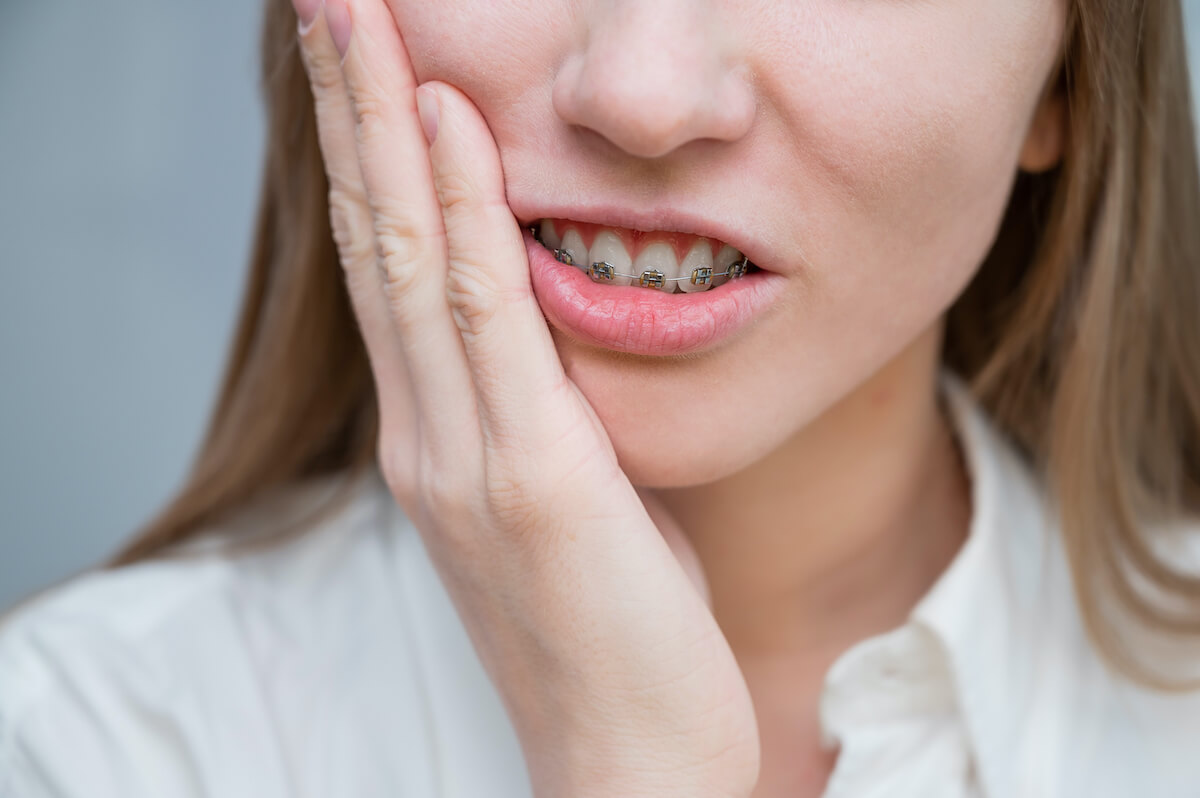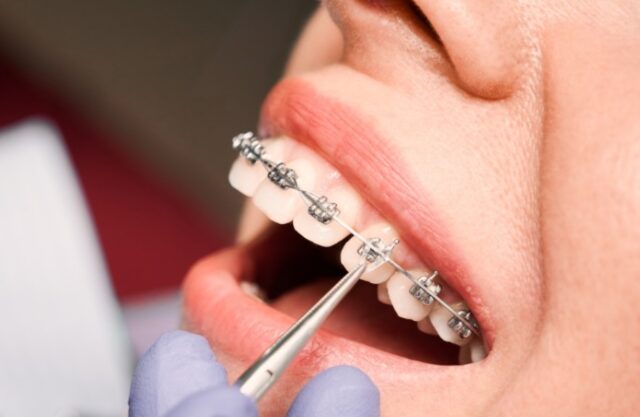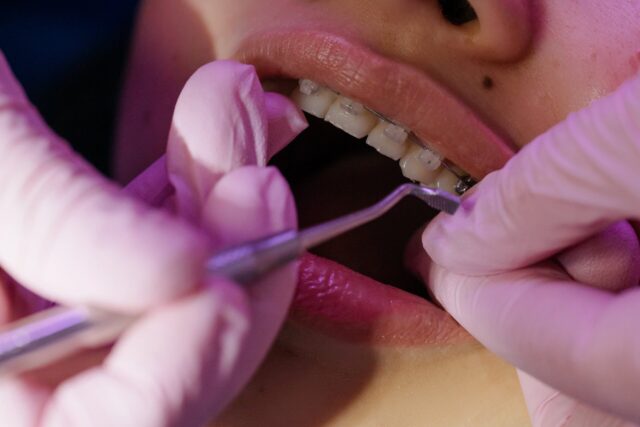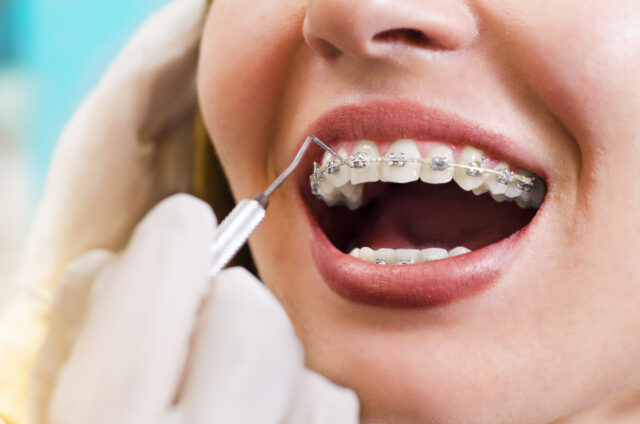
A big decision in your life is deciding to get braces to straighten your teeth. In addition to the pain, discomfort, and frequent trips to the orthodontist, one also has to become used to the new item in their mouth.
This article is for you if you’re considering getting braces and are worried about how much pain and suffering you’ll experience while wearing them. To learn everything there is to know about braces and tooth pain, keep reading.
Common and Usual Effects of Braces

• Mild Discomfort
Braces may cause some discomfort, which is entirely normal and to be expected. Because braces correct your teeth’s alignment by manually adjusting them, pain is frequently a side effect. Your teeth may be the focus of this, which can also cause headaches, which are both often experienced. Most people can find relief from any stress or discomfort they are experiencing by using over-the-counter painkillers like acetaminophen and ibuprofen. Do inform your dentist if your headaches or pains get much worse over time, as this could indicate something else at work.
• Irritation
Because of the condition your lips are in while wearing aligners, irritation will eventually set in. Gums require some time to acclimate to the new invaders.
Good things exist that can ease discomfort. One example is orthodontic wax. The entire area that irritates you should be waxed. Until the problem is resolved, keep doing your daily hygiene as usual. If the irritation is severe, contact a Collegeville orthodontist at drmcsurdy.com.
• Difficulty While Eating
Patients frequently have trouble eating after tightening or applying braces because their teeth and jaw are painful. During the first few days, eating with braces might be difficult. But as time passes, your mouth will adjust to them, and eating won’t be as challenging.
Eating foods that are firm or sticky can cause your braces to come off; therefore, you should avoid doing so. Furthermore, eating hard meals may make your discomfort and toothache worse.
Following the tightening of your braces by your orthodontist, eating may become challenging for a few days. There is, however, no cause for concern. The discomfort here will also pass in a few days.

Why Do Braces Hurt?
Due to biological changes in the jawbone brought on by the teeth shifting, braces-related toothaches might happen. The metallic orthodontic wire runs through a slot in each orthodontic bracket, as said by an orthodontist in Northern Virginia. Using elastic ties, this wire is fastened to the brackets.
Your orthodontist will adjust the orthodontic wire’s tension at each visit so that it presses against your teeth and moves them in the intended direction. Because your tooth roots are moving inside your bone while you wear braces, any minor pain you experience, especially after tightening them, is likely caused by the pressure created by the movement.
How Long Does Braces Hurt?
Thankfully, the discomfort and agony caused by braces are temporary and treatable. Usually, the most uncomfortable period follows the fitting of braces during the first three days. Your teeth are already shifting due to your braces, and the soft tissue in your mouth and lips is not used to being physically rubbed by the brackets and wires. You should anticipate uncomfortable teeth and gums, particularly while eating, as well as the occurrence of little sore areas on your tongue and the inside of your cheeks. The average duration of this pain and suffering is one to two days a week.
To maintain a smooth course of therapy, braces also need to be adjusted every month or two. At these scheduled visits, your orthodontist could tighten the bands or springs on your braces to apply more pressure on your teeth. Following these appointments, you might feel temporary tooth and gum pain, but the first few days with new braces are when you’ll feel the most discomfort!
The average time it takes to get used to the strange feeling of having braces in their mouth is about a month. By six months, you frequently hardly detect them because the body is extraordinarily adaptable.

How To Relieve Braces Pain?
- Consuming over-the-counter (OTC) painkillers, such as acetaminophen or ibuprofen.
- Rinsing with a warm saltwater solution that contains one teaspoon of salt per 8 ounces of warm water.
- Consuming soft foods that don’t require much chewing, including soup, ice cream, or yogurt, and cold drinks and foods.
- Topical anesthetics are applied to the gums using a finger or cotton swab after placing an ice pack with a cloth covering the face.
- Gum pain can be successfully treated with massage, a well-known painkiller. Just use your finger to gently rub your gums in a circular manner until the swelling and soreness go away.
- Regular brushing and flossing are necessary to keep your new braces clean and clear of food debris. Just keep in mind to brush more delicately to prevent irritated sore teeth and gums.
When Should You Visit The Orthodontist?
The majority of the time, people who wear braces visit their orthodontist frequently to have them tightened. Calling the orthodontist to make an appointment is advised if a person’s braces get loose, a wire breaks or the bands come off. Wax can be applied to the bracket or wire while the patient is waiting for their visit to prevent cuts to their cheek or tongue.
If a person experiences significant pain that persists despite taking painkillers for a few days or longer, they should also get in touch with their orthodontist. To ensure that everything fits correctly and that no other underlying conditions are hurting, an orthodontist can inspect the braces.

Conclusion
When worn, braces can be painful or uncomfortable for the wearer. Typically, only when an orthodontist places the braces for the first time and follows routine brace tightening will patients experience pain or discomfort. If a piece of the brace is pressing against or protruding into their mouth, they could also experience discomfort.
Both times, pain may usually be controlled with over-the-counter painkillers, cold beverages, and a diet high in soft foods. A person should visit their orthodontist if their braces fall loose or cause excruciating pain.









